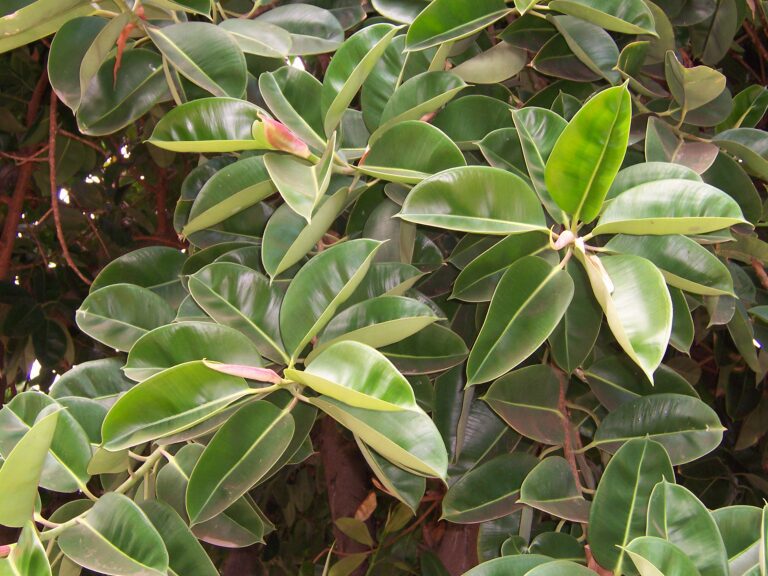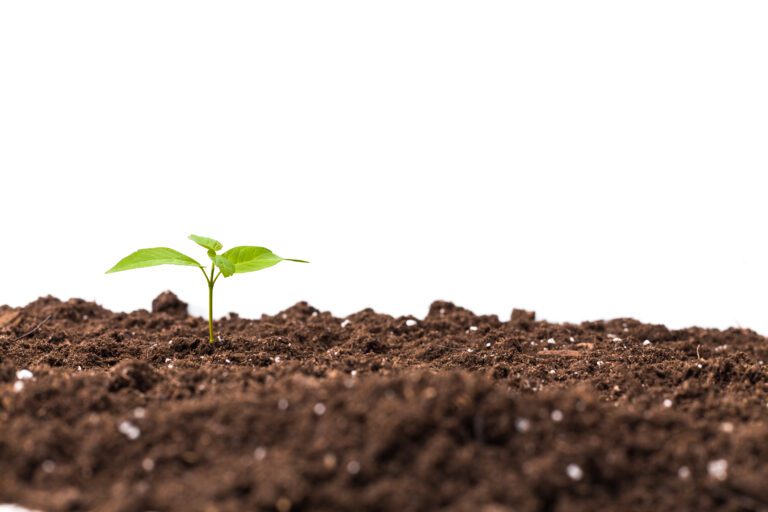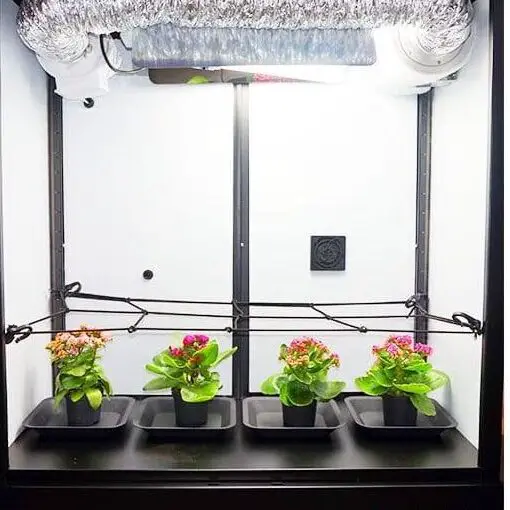Distilled Water for Plants: Pros and Cons
Table of Contents
Understanding the Basics: Water and Plant Growth
Water is an essential element in the growth and development of plants. It plays a vital role in various physiological processes such as nutrient absorption, photosynthesis, and cellular respiration. Without an adequate supply of water, plants can become dehydrated, wilt, and eventually die.
In addition to quenching their thirst, plants also rely on water to transport nutrients and minerals from the soil to different parts of their bodies. Water acts as a carrier, facilitating the movement of these essential elements through the plant’s vascular system. Furthermore, water helps maintain the structural integrity of plants by filling out their cells, providing turgidity, and supporting their overall form.
Without a doubt, the importance of water for plant growth cannot be overstated. As gardeners and plant enthusiasts, it is crucial to understand the role water plays in the life of our green companions. By comprehending the basics of water and plant growth, we can make informed decisions about the type of water we use and how we can optimize the watering process to ensure the health and vitality of our plants.
Defining Distilled Water: What Sets It Apart?
Distilled water is a type of purified water that has undergone a specific process to remove impurities and contaminants. Unlike tap water or even filtered water, distilled water is virtually free of minerals, chemicals, and other substances. It is obtained through a process called distillation, which involves boiling water and then collecting the steam as it condenses back into liquid form.
The distillation process is designed to separate the water molecules from any impurities that may be present. This is achieved by heating the water to its boiling point, which causes the water molecules to evaporate and rise as steam. The steam is then cooled and collected, leaving behind any impurities that do not evaporate at the same temperature as water. The result is water that is extremely pure and lacks the minerals and chemicals commonly found in tap water.
In addition to its purity, distilled water is also known for its neutral pH level. The pH of water refers to its level of acidity or alkalinity, with a pH of 7 considered neutral. Tap water and other types of water can vary in pH due to the presence of minerals and other substances. Distilled water, on the other hand, has a consistent and neutral pH, which can be beneficial for certain plants that require a specific pH range for optimal growth.
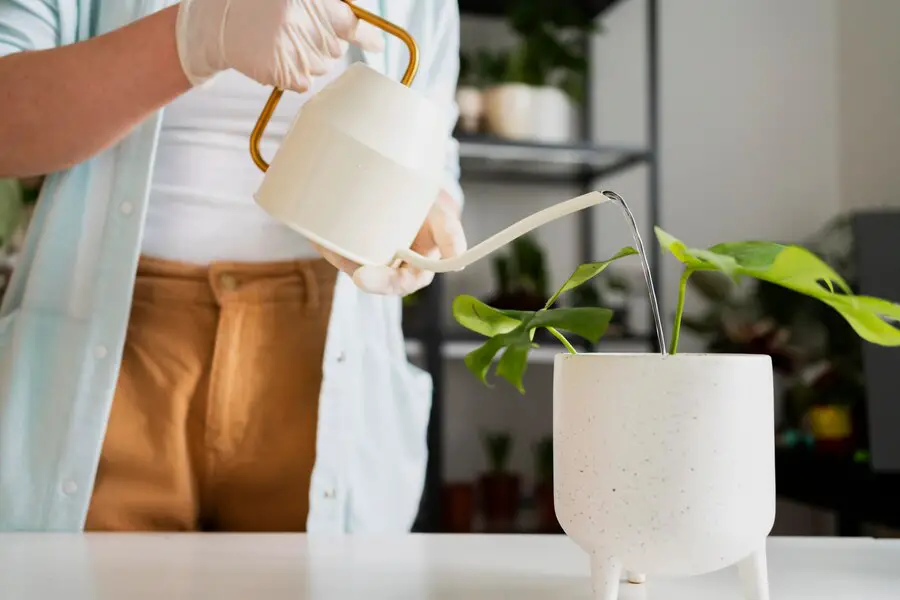
The Pros of Using Distilled Water for Plants
The use of distilled water in plant care offers numerous advantages for healthy growth and development. One of the key benefits is the consistency and purity that distilled water provides. Unlike tap water, which can vary in quality and composition depending on location, distilled water is free from contaminants such as chemicals, minerals, and impurities. This purity ensures that plants receive a clean and reliable source of hydration, which in turn supports optimal nutrient absorption and promotes overall plant health.
Additionally, the use of distilled water helps prevent mineral build-up in both the soil and roots. Tap water often contains high levels of minerals, such as calcium and magnesium, which can accumulate over time and lead to soil and root blockages. By using distilled water, gardeners can effectively eliminate this risk, allowing plants to access nutrients freely and avoiding potential nutrient deficiencies. This, in turn, reduces the likelihood of nutrient-related diseases and enhances the overall resilience of plants.
In conclusion, the pros of using distilled water for plants are undeniable. Its consistency and purity provide plants with a reliable source of hydration, while also preventing mineral build-up and promoting optimal nutrient absorption. By incorporating distilled water into your plant care routine, you can ensure that your plants receive the best possible care for healthy growth and longevity.
Consistency and Purity: The Key Advantages
Consistency and purity are two key advantages of using distilled water for plants. When it comes to consistency, distilled water provides a standardized and reliable source of hydration for your plants. Unlike tap water, which can vary in its mineral content and pH levels, distilled water ensures that your plants receive the same consistent level of hydration with each watering.
Furthermore, the purity of distilled water is highly beneficial for plant growth. Tap water often contains various impurities, such as chlorine, fluoride, and heavy metals, which can hinder plant health and growth. By using distilled water, you eliminate these potential harmful substances, providing a cleaner and purer environment for your plants to thrive in.
In addition, the absence of impurities in distilled water helps prevent mineral build-up in both the soil and the roots of your plants. Over time, tap water can lead to the accumulation of minerals, which can negatively affect soil structure and hinder nutrient absorption. By using distilled water, you minimize the risk of mineral build-up, ensuring that your plants can efficiently absorb the essential nutrients they need for optimal growth.
Overall, the consistency and purity offered by distilled water are significant advantages for those looking to provide the best possible conditions for their plants. By ensuring a consistent hydration level and eliminating harmful impurities, you can promote healthier and more robust plant growth. However, it’s important to consider the potential drawbacks of using distilled water as well, which we will explore in the following sections.
Eliminating Harmful Chemicals and Contaminants
To ensure optimal plant growth and health, it is crucial to eliminate harmful chemicals and contaminants from the water used for irrigation. Tap water often contains various pollutants, such as chlorine, fluoride, heavy metals, and pesticides, which can have detrimental effects on plants. These chemicals can accumulate in the soil over time, causing long-term damage to the plants and hindering their growth.
One of the key benefits of using distilled water for plants is that it is free from these harmful substances. Distillation is a purification process that removes impurities, leaving behind pure H2O molecules. By using distilled water, gardeners can provide their plants with a clean and uncontaminated water source, reducing the risk of chemical toxicity and promoting healthier growth. Featuring a neutral pH level, distilled water also helps maintain a balanced environment for plant roots, enabling them to efficiently absorb essential nutrients for optimal development.

Preventing Mineral Build-Up in Soil and Roots
Minerals play a crucial role in the growth and development of plants. However, excessive mineral build-up in soil and roots can be detrimental to their health. One of the advantages of using distilled water for plants is its ability to prevent this mineral accumulation.
When tap water or other sources containing minerals are used for watering plants, these minerals can gradually accumulate in the soil over time. This can lead to a condition known as “soil salinity,” where the soil becomes overly salty and inhospitable for plant growth. Additionally, the build-up of minerals in the roots can interfere with nutrient absorption, causing imbalances and deficiencies in essential elements.
By utilizing distilled water in your gardening practices, you can significantly reduce the risk of mineral build-up in both soil and roots. Distilled water is void of any minerals and impurities, making it a pure and consistent source of hydration for your plants. This means that you have more control over the nutrient intake of your plants, ensuring that they receive the exact balance of minerals necessary for their optimal growth and development.
Promoting Optimal Nutrient Absorption
To promote optimal nutrient absorption in plants, it is essential to create an environment that supports their ability to take in and utilize the necessary elements for growth. One of the key factors in achieving this is providing plants with the right type of water. Distilled water, with its purity and lack of impurities, can play a crucial role in facilitating the absorption of nutrients by plants.
Distilled water is free from contaminants and chemicals that can hinder nutrient absorption in plants. With its neutral pH and absence of minerals, it allows for better control and regulation of the nutrient solution provided to plants. This means that the concentration of essential elements can be precisely managed, ensuring that plants receive the optimal balance of nutrients for their growth and development. By using distilled water, gardeners can create an environment that maximizes nutrient absorption and provides plants with the best conditions for healthy and vigorous growth.
Here’s a table outlining strategies to promote optimal nutrient absorption:
| Nutrient | Enhancing Factors |
|---|---|
| Iron | – Vitamin C: Enhances iron absorption. Pair iron-rich foods with vitamin C sources like citrus fruits, bell peppers, and strawberries. \n- Avoid Calcium: Calcium can inhibit iron absorption. Separate iron and calcium-rich meals. |
| Vitamin D | – Sunlight: Get moderate sun exposure to stimulate vitamin D synthesis in the skin. \n- Fat: Vitamin D is fat-soluble, so consume it with healthy fats like avocados, nuts, and olive oil. |
| Calcium | – Vitamin D: Necessary for calcium absorption. Ensure adequate vitamin D levels. \n- Magnesium: Supports calcium utilization. Include magnesium-rich foods like nuts and whole grains. |
| Zinc | – Protein: Zinc absorption is protein-dependent. Consume zinc-rich foods alongside protein sources.\n- Avoid Phytates: Phytates (found in grains and legumes) can hinder zinc absorption. Soak or ferment these foods. |
| Magnesium | – Vitamin B6: Enhances magnesium absorption. Include foods rich in both nutrients, like bananas and spinach. \n- Limit Oxalates: High oxalate foods (e.g., spinach, beet greens) can reduce magnesium absorption. Balance intake. |
Remember that a balanced diet, proper food combinations, and overall health play crucial roles in nutrient absorption. Consult a healthcare professional for personalized advice.
Reducing the Risk of Plant Diseases
Reducing the risk of plant diseases is crucial for maintaining healthy and thriving plants. One of the key advantages of using distilled water for plants is its ability to minimize the spread of diseases. Tap water often contains various contaminants and pathogens that can weaken plants and make them susceptible to infections. Distilled water, on the other hand, undergoes a rigorous purification process that eliminates harmful bacteria, fungi, and viruses, reducing the likelihood of diseases taking hold.
In addition to reducing the risk of plant diseases, using distilled water can also prevent the transfer of harmful pathogens from water to plants. Many diseases affecting plants are soil-borne or waterborne, and using contaminated water can introduce these pathogens into the plant’s root system. By using distilled water, which is free from these pathogens, gardeners can help create a healthier growing environment for their plants. When combined with other disease prevention measures such as proper sanitation and good cultural practices, using distilled water can significantly reduce the occurrence and severity of plant diseases.
Balancing pH Levels for Healthy Growth
Maintaining the proper pH levels in the soil is crucial for healthy plant growth. pH stands for “potential hydrogen” and is a measure of the acidity or alkalinity of a substance. Different plants thrive in different pH ranges, and it is essential to balance the pH levels to provide optimal conditions for your plants.
When the pH level is too high or too low, it can affect nutrient availability in the soil. For example, certain nutrients like iron, manganese, and phosphorus are less available to plants in alkaline soil, while others like aluminum and manganese become more available in acidic soil. Imbalanced pH levels can lead to nutrient deficiencies, stunted growth, and overall poor plant health.
Balancing pH levels involves amending the soil to reach the desired range for your specific plants. Acid-loving plants, such as blueberries and azaleas, thrive in lower pH levels, while alkaline-loving plants, like asparagus and spinach, prefer higher pH levels. By monitoring and adjusting the pH levels in your soil, you can create an ideal growing environment for your plants, ensuring they receive the necessary nutrients for healthy growth.
In the next section, we will explore the various methods and tools available for testing and adjusting pH levels in your garden to promote healthy plant growth. We will discuss the importance of using the right materials and techniques to achieve optimal results, and provide practical advice on how to effectively balance pH levels in different gardening scenarios.

Increasing the Lifespan of Sensitive Plants
Sensitive plants require special care and attention to ensure their longevity. One way to increase the lifespan of these delicate plants is by using distilled water for their watering needs. Distilled water is free from impurities and contaminants that can harm sensitive plants, making it an ideal choice for their irrigation.
When sensitive plants are exposed to tap water or other types of water that contain minerals and chemicals, it can have detrimental effects on their growth and overall health. The accumulation of minerals in the soil and roots can disrupt nutrient absorption and increase the risk of plant diseases. By using distilled water, these issues can be minimized, promoting optimal nutrient absorption and reducing the likelihood of plant ailments.
In addition to its purity, distilled water aids in maintaining balanced pH levels, a crucial factor for the health and development of sensitive plants. Tap water often contains varying levels of alkaline or acidic compounds, which can disrupt the plants’ natural pH balance. By using distilled water, gardeners can regulate the pH levels more accurately, ensuring that sensitive plants receive the ideal conditions for growth. By providing the right pH balance, the lifespan of these plants can be significantly prolonged.
Tackling Common Household Water Issues
Common household water issues can pose challenges when it comes to nurturing healthy plants. One common issue is hard water, which contains high concentrations of minerals such as calcium and magnesium. These minerals can accumulate in the soil over time, leading to a build-up that affects the pH balance and nutrient absorption of plants. Another issue is chlorinated water, commonly used in municipal water systems to disinfect the supply. While chlorine is effective at killing harmful bacteria, it can also negatively impact plant health by damaging beneficial microorganisms in the soil.
To tackle these common household water issues, there are several approaches gardeners can take. One option is to invest in a water treatment system that can remove the excess minerals and chlorine from the water. This can help maintain a more favorable pH balance in the soil and prevent nutrient deficiencies in plants. Another solution is to let tap water sit out for 24 hours before using it on plants. This allows chlorine to dissipate naturally, reducing its potential harmful effects. Additionally, using rainwater or distilled water can provide a clean and chemical-free source of water for plants, avoiding the issues associated with tap water altogether. By addressing these common household water issues, gardeners can ensure their plants receive the optimal hydration and care they need for flourishing growth.
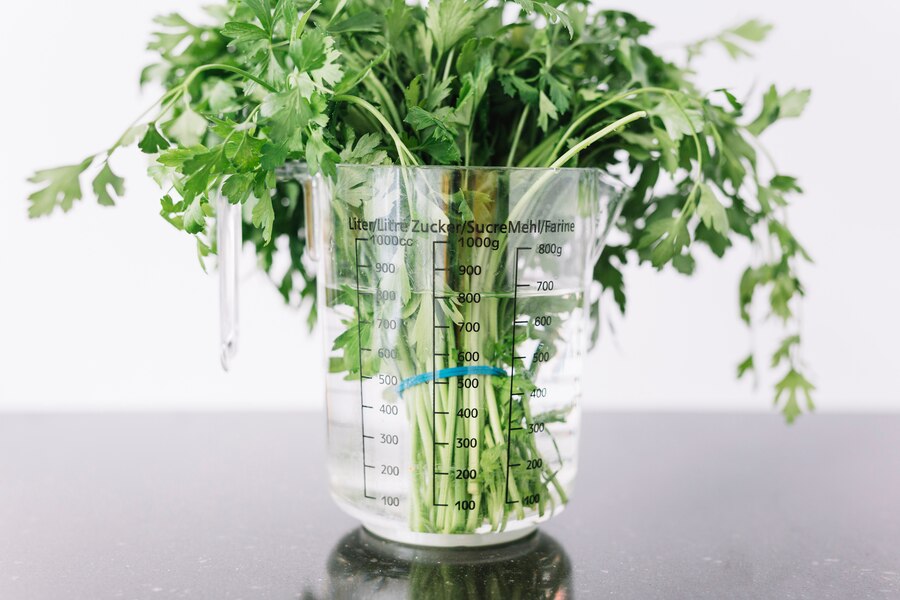
The Drawbacks of Using Distilled Water for Plants
Although there are several advantages to using distilled water for plants, it is important to consider the drawbacks as well. One major drawback is the potential deprivation of essential minerals. Unlike tap water or other sources, distilled water does not contain the natural minerals that plants need for optimal growth and development. These minerals, such as calcium, magnesium, and potassium, play critical roles in various plant functions, including photosynthesis, enzyme activation, and nutrient uptake. Depriving plants of these essential minerals can lead to deficiencies, stunted growth, and weakened immune systems, making them more susceptible to diseases and pests.
Another drawback of using distilled water for plants is the potential for nutrient imbalances. Without the natural minerals present in tap water or other water sources, the nutrient solution used in hydroponics or other soilless growing systems may need to be carefully formulated to ensure that plants receive adequate nutrition. If not properly balanced, the nutrient solution can lead to nutrient deficiencies or toxicities, negatively impacting plant health and growth. Additionally, the lack of minerals in distilled water can result in an unstable pH level, which can further hinder nutrient absorption and overall plant development.
While distilled water may offer certain benefits, it is crucial to be aware of these drawbacks and take measures to address them. Supplementing with appropriate mineral solutions, monitoring nutrient levels, and adjusting pH as needed can help mitigate the potential negative effects of using distilled water for plants. By striking a balance between the advantages and drawbacks, gardeners can make informed decisions that promote the health and vitality of their plants.
Depriving Plants of Essential Minerals
Using distilled water for plants can have certain drawbacks, namely depriving plants of essential minerals. While distilled water is free of impurities and contaminants, it also lacks the beneficial minerals that plants need for healthy growth and development. Plants rely on these minerals, such as calcium, magnesium, and potassium, for various physiological processes that are vital for their overall well-being.
When plants are consistently watered with distilled water, there is a risk of nutrient deficiencies occurring over time. This can manifest as yellowing leaves, stunted growth, and poor flowering or fruiting. Essential minerals play a critical role in functions such as photosynthesis, enzyme activation, and cell division, and their absence can significantly hinder a plant’s ability to thrive. Consequently, gardeners and plant enthusiasts must carefully consider the potential consequences of using distilled water as their primary watering source.
While it is possible to supplement the lack of minerals in distilled water by adding appropriate fertilizers or nutrient solutions, this requires careful monitoring and precise application. The precise nutrient requirements may vary depending on the specific plant species, growing medium, and environmental factors. As such, it is essential to perform regular soil tests and consult with experts or refer to credible resources to ensure the correct balance of nutrients is maintained. By taking these steps, gardeners can mitigate the risk of essential mineral deficiencies and help their plants reach their full growth potential.
Potential Nutrient Deficiencies and Their Solutions
Nutrient deficiencies can hinder the growth and development of plants, leading to stunted growth, yellowing leaves, and overall poor health. It is important for gardeners to be aware of potential nutrient deficiencies and their solutions in order to provide the necessary elements for optimal plant growth.
One common nutrient deficiency that plants may encounter is nitrogen deficiency. Nitrogen is an essential macronutrient that plays a critical role in the formation of proteins, enzymes, and chlorophyll. When plants lack sufficient nitrogen, they often exhibit slow growth, pale or yellow leaves, and reduced fruit or flower production. To address this deficiency, gardeners can apply organic nitrogen-rich fertilizers, such as compost or well-rotted manure, to boost nitrogen levels in the soil. Additionally, incorporating legumes into the garden can help fix nitrogen in the soil through the process of nitrogen fixation.
Another nutrient deficiency that plants may face is potassium deficiency. Potassium is vital for various physiological processes in plants, including nutrient uptake, water regulation, and photosynthesis. Plants deficient in potassium may display symptoms like yellowing or browning leaf margins, weak stems, and decreased resistance to pests and diseases. To remedy this deficiency, gardeners can use potassium-rich fertilizers, such as potassium sulfate or potassium chloride, to provide plants with an adequate supply of this essential nutrient. Additionally, ensuring proper soil pH, adequate drainage, and avoiding excessive use of nitrogen can help prevent potassium deficiencies in plants.
By being mindful of potential nutrient deficiencies and implementing appropriate solutions, gardeners can help ensure that their plants receive the necessary nutrients for healthy growth and development. It is essential to provide a nutrient-rich environment to support optimal plant health and productivity.
Here’s a table summarizing common nutrient deficiencies and their potential solutions:
| Nutrient Deficiency | Symptoms | Dietary Sources | Solutions |
|---|---|---|---|
| Iron | Fatigue, weakness, anemia | – Red meat\n- Organ meat\n- Shellfish\n- Canned sardines\n- Beans\n- Seeds\n- Dark, leafy greens | – Consume iron-rich foods\n- Pair with vitamin C for better absorption |
| Vitamin B12 | Fatigue, weakness, tingling | – Animal products (meat, fish, eggs, dairy)\n- Fortified foods | – Include B12-rich foods in your diet\n- Consider supplements if deficient |
| Vitamin D | Bone pain, muscle weakness | – Sun exposure\n- Fatty fish\n- Fortified foods | – Get sunlight exposure\n- Include vitamin D-rich foods\n- Supplements if needed |
| Calcium | Weak bones, fractures | – Dairy products\n- Leafy greens\n- Fortified foods | – Consume calcium-rich foods\n- Consider supplements if necessary |
| Iodine | Thyroid dysfunction | – Iodized salt\n- Seafood | – Use iodized salt\n- Include iodine-rich foods\n- Be cautious with excessive intake |
| Zinc | Impaired immune function | – Meat\n- Legumes\n- Nuts\n- Seeds | – Include zinc-containing foods\n- Supplements if deficient |
| Magnesium | Muscle cramps, fatigue | – Nuts\n- Seeds\n- Whole grains\n- Leafy greens | – Consume magnesium-rich foods\n- Supplements if needed |
Remember to consult with a healthcare provider if you suspect any deficiencies or need personalized advice.
The Cost Factor: Is Distilled Water Worth It?
Distilled water is undoubtedly an excellent choice for maintaining the health and vitality of your plants. However, it is crucial to consider the cost factor before making a decision. The process of distilling water involves significant energy consumption, which can translate into higher expenses for your gardening endeavors.
Although the cost of distilled water may vary depending on your location and the volume you require, it is generally more expensive than tap water or other alternatives. This additional expense can be a significant consideration, especially for large-scale gardening or hydroponic setups where a substantial amount of water is needed. Therefore, it is essential to weigh the benefits of using distilled water against its potential impact on your budget.
Conclusion: Making an Informed Decision for Your Plants.
In conclusion, when it comes to making an informed decision about using distilled water for your plants, it’s essential to consider both the advantages and drawbacks. Distilled water offers consistency and purity, eliminating harmful chemicals and contaminants that can negatively impact plant growth. It also prevents mineral build-up in the soil and roots, promoting optimal nutrient absorption and reducing the risk of plant diseases.
However, it’s crucial to be aware of the potential drawbacks as well. By using distilled water, plants may be deprived of essential minerals, which can lead to nutrient deficiencies. This issue can be mitigated by supplementing the water with appropriate fertilizers or nutrient solutions. Additionally, the cost of using distilled water as opposed to tap water should also be taken into account.
Ultimately, the decision to use distilled water for your plants should depend on factors such as the specific needs of your plants, the quality of your tap water, and your budget. It’s important to assess the individual requirements of your plants and consider the potential benefits and drawbacks before making a choice. By staying informed and taking a balanced approach, you can ensure the optimal growth and health of your plants.
Please do watch video!
Can I use tap water for my plants instead of distilled water?
Yes, you can use tap water for your plants. However, it may contain chemicals and contaminants that could be harmful to your plants in the long run.
Will using distilled water prevent mineral build-up in the soil and roots?
Yes, using distilled water can help prevent mineral build-up in the soil and roots. Distilled water is free from minerals and impurities, reducing the risk of accumulation over time.
Can using distilled water promote optimal nutrient absorption in plants?
Yes, distilled water can promote optimal nutrient absorption in plants. By eliminating impurities, it allows the plants to absorb nutrients more effectively, leading to healthier growth.
Does using distilled water reduce the risk of plant diseases?
Yes, using distilled water can help reduce the risk of plant diseases. It eliminates harmful bacteria and contaminants that may contribute to the onset of diseases in plants.
Will using distilled water balance the pH levels for healthy plant growth?
Yes, using distilled water can help balance pH levels for healthy plant growth. It lacks the acidity or alkalinity frequently found in tap water, providing a more neutral pH environment for the plants.
Can using distilled water increase the lifespan of sensitive plants?
Yes, using distilled water can increase the lifespan of sensitive plants. It minimizes the exposure to harmful substances, allowing delicate plants to thrive and live longer.
What are the potential nutrient deficiencies that may arise from using distilled water?
The use of distilled water may result in potential nutrient deficiencies in plants, particularly in essential minerals like calcium and magnesium. However, these deficiencies can be managed through proper fertilization and soil amendments.
Is using distilled water worth the cost?
The worthiness of using distilled water depends on various factors such as the quality of your tap water and the specific needs of your plants. If your tap water is highly contaminated or if you have sensitive plants, the cost of using distilled water may be justified.
What are some common household water issues that can be addressed by using distilled water for plants?
Using distilled water for plants can help tackle common household water issues such as high mineral content, chlorine or chloramine levels, and other impurities that may negatively affect plant health.
Is there any alternative to distilled water for watering plants?
Yes, there are alternatives to distilled water for watering plants. Rainwater or filtered water can also be used as alternatives, as long as they are free from contaminants that could harm the plants.

Nicole Burke is a dynamic writer at SouthElMonteHydroponics, fueled by her passion for horticulture and environmental sustainability. Armed with a degree in Environmental Science from a renowned institution, Nicole’s expertise lies in hydroponic gardening, organic farming, and biodiversity conservation. Her insatiable curiosity and love for nature drive her to explore innovative techniques in hydroponics, seeking to revolutionize the way we grow crops in urban environments. Nicole’s writing reflects her deep commitment to promoting eco-conscious practices and fostering a deeper connection between humans and the natural world. Through her engaging storytelling, she inspires others to embrace sustainable living and harness the power of hydroponics for a greener future.



